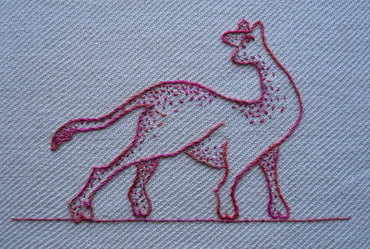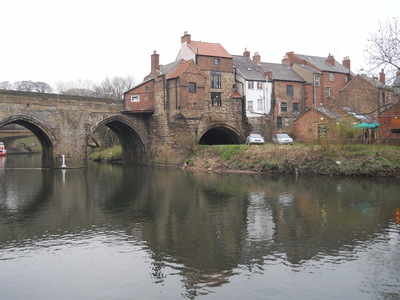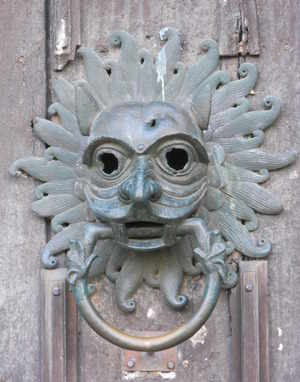Rugby weekend
Posted on
Thanks to all who joined myself and Nikki Jarvis for another successful weekend of classes in Rugby! Saturday saw us all stitching this silk shaded Fuchsia bag (well done everyone, this isn't easy!)...
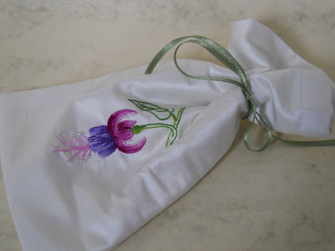
...then Sunday we had great fun making goldwork daisy brooches. This is the one Nikki and I made in class to demonstrate the techniques:
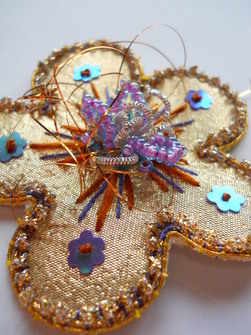
It is a bit crazy as we used the materials to hand, but good fun none the less! And it just goes to show, there is always something new to learn: I learnt puff couching!
Nikki and I are planning a day class program starting in September, so keep an eye on this blog and the classes pages for more information.

